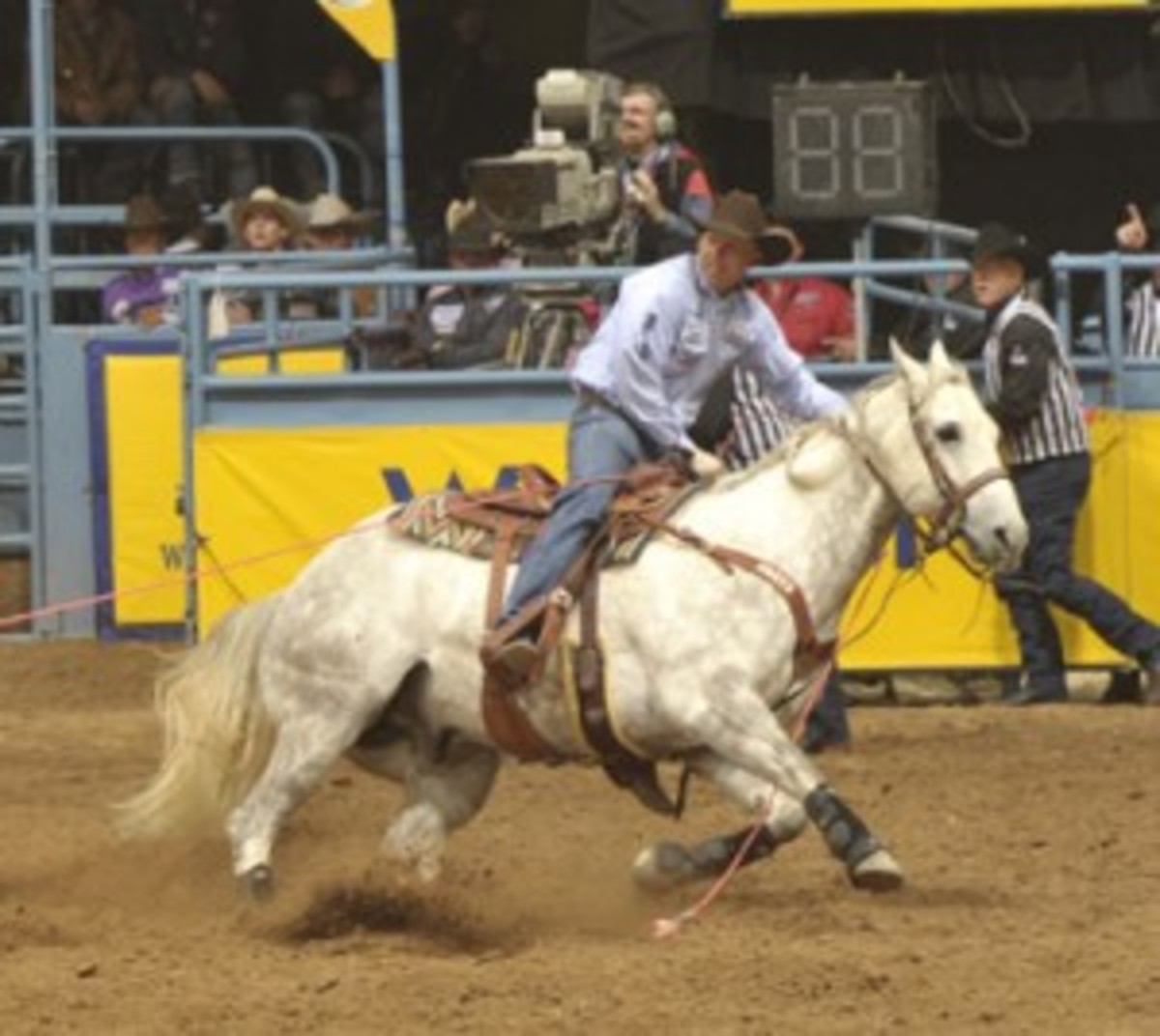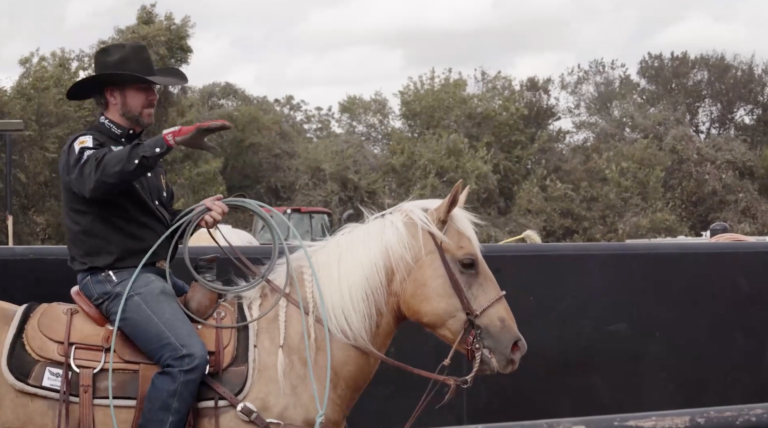When the Wrangler National Finals Rodeo opened in Las Vegas on December 1, Turtle Powell was not riding his great (2010 American Quarter Horse Association/Professional Rodeo Cowboys Association) Head Horse of the Year Vegas following a rather bizarre medical condition this summer, involving lamintis. I had a chance to sit down with Turtle at Pendleton in September, and followed up with him the middle of October on Vegas’s progress in recovering from laminitis.

It all started in July, while Turtle was rodeoing in Montana. When he caught Vegas one morning and led him to the trailer, Turtle had an intuitive feeling that the horse’s expression wasn’t right. Vegas hadn’t quit eating or had any other obvious symptoms, like a nasal discharge, but there was enough concern that Turtle took the horse’s temperature. It was 106 degrees (normal is about 99).
Turtle took Vegas to a veterinarian, who ran various diagnostic tests with nothing in the way of results to put a name on the problem. Vegas was treated with antibiotics, Banamine and I.V. fluids, and seemed to respond well in that the fever subsided and his appetite was good. Turtle took the horse to some friends’ place to turn him out on pasture for a little R and R. Everything seemed to be going well for about two weeks when overnight the horse developed severe swelling in all four legs.
Vegas was immediately taken back to the veterinarian and a diagnosis of purpura hemorrhagica was made. This disease is basically an inflammation of the blood vessels (referred to as vasculitis), which causes the walls of small vessels to leak serum with even some small hemorrhages (called petechia).
This abnormality results in the classic symptoms of limb edema and pinpoint hemorrhages or darkening of the gums. The most common etiology (cause) for this condition is an abnormal immune response to an antigen of the strangles bacteria, streptococcus equi. There had been no symptoms of strangles, or any history of recent vaccination for strangles, which can precipitate the condition. Naturally, Vegas was treated aggressively for the condition and seemed to respond well. The veterinarian released the horse, and Turtle picked him up on his way to Puyallup (Wash., the second week in September).
Turtle wasn’t riding Vegas at Puyallup, but when exercising him noted a subtle abnormality in the way he moved. He took Vegas to an equine clinic in Washington, and the diagnosis was laminitis (founder). Six weeks had elapsed since the initial problem of the fever of unknown origin before any symptoms of laminitis evolved. Describing the treatment of founder is beyond the scope of this column, but suffice it to say that everything was done in the way of medical treatment with appropriate drugs, Styrofoam support pads on the feet and rest to try and avoid further trauma to the sensitive lamina.
Only time is going to tell the ultimate outcome of this situation. I feel that a case like this one is good to present on occasion to remind us not to assume we know everything there is to know or can control every situation. My sincere thanks to Turtle for his willingness to share Vegas’s story. Like all of you, I’m pulling for a positive outcome for this great horse.










